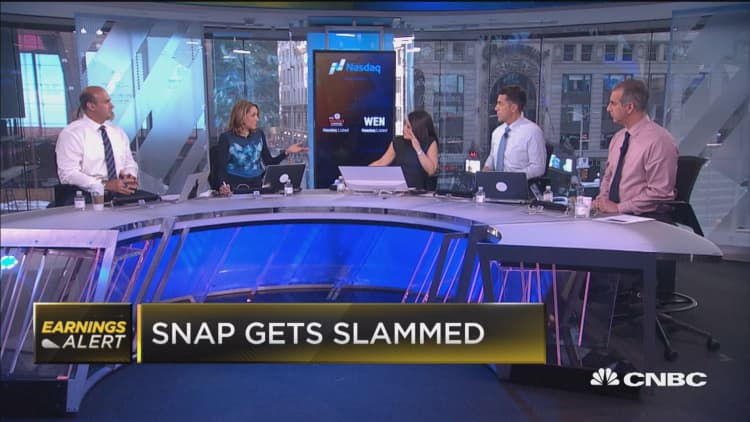How do you lose more than $2 billion in your first quarter as a public company?
By paying out $2 billion in stock to your employees.
That's the short story behind the $2.2 billion first-quarter loss Snap posted today. The bulk of that came from $2 billion in stock that company recognized on its books on the date of its "qualifying event" — when it went public earlier this year.
More from Recode:
Snap CEO Evan Spiegel is not afraid of Facebook. Not. One. Bit.
Live notes from Snap's first-ever earnings call
Uber engineers are looking to leave as a court case puts the self-driving future in limbo
If you pull out those payments, and some other costs, Snap's loss is a more palatable $188 million. Which is the way Snap would prefer that investors look at things:

About the $2 billion: Much of that came from the "CEO award" that Snap's investors gave Evan Spiegel as a reward for taking the company public. But Spiegel's award didn't represent the bulk of that sum.
In the last proxy statement Snap filed before going public, Snap estimated the value of Spiegel's award at more than $550 million, and said it had another $1.1 billion in employee stock awards that would kick in after the IPO. We should get a more accurate breakdown when Snap files its first quarterly report with the SEC, but let's use those numbers as a placeholder for now.
It is also worth noting that the seemingly dull issue of stock based compensation has become a big deal for Silicon Valley companies in the last year or so.

Short version: For a long time, tech companies tried to argue that investors shouldn't worry about the stock they paid their employees, because it didn't represent the "real" cost of running their business. For various reasons, several prominent tech companies, including Alphabet and Facebook, are now including stock comp in their numbers.
In any event, Snap told Wall Street about that those expenses were coming, so that's not what's dragging the stock down despite what, um, people said on Twitter. (Never tweet.)
Wall Street is worried, first and foremost, about Snap's user numbers, and whether all the Snap cloning Facebook has engaged in over the last few months has cut into Snap's user base.
CNBC's parent NBCUniversal is an investor in Recode's parent Vox, and the companies have a content-sharing arrangement.

